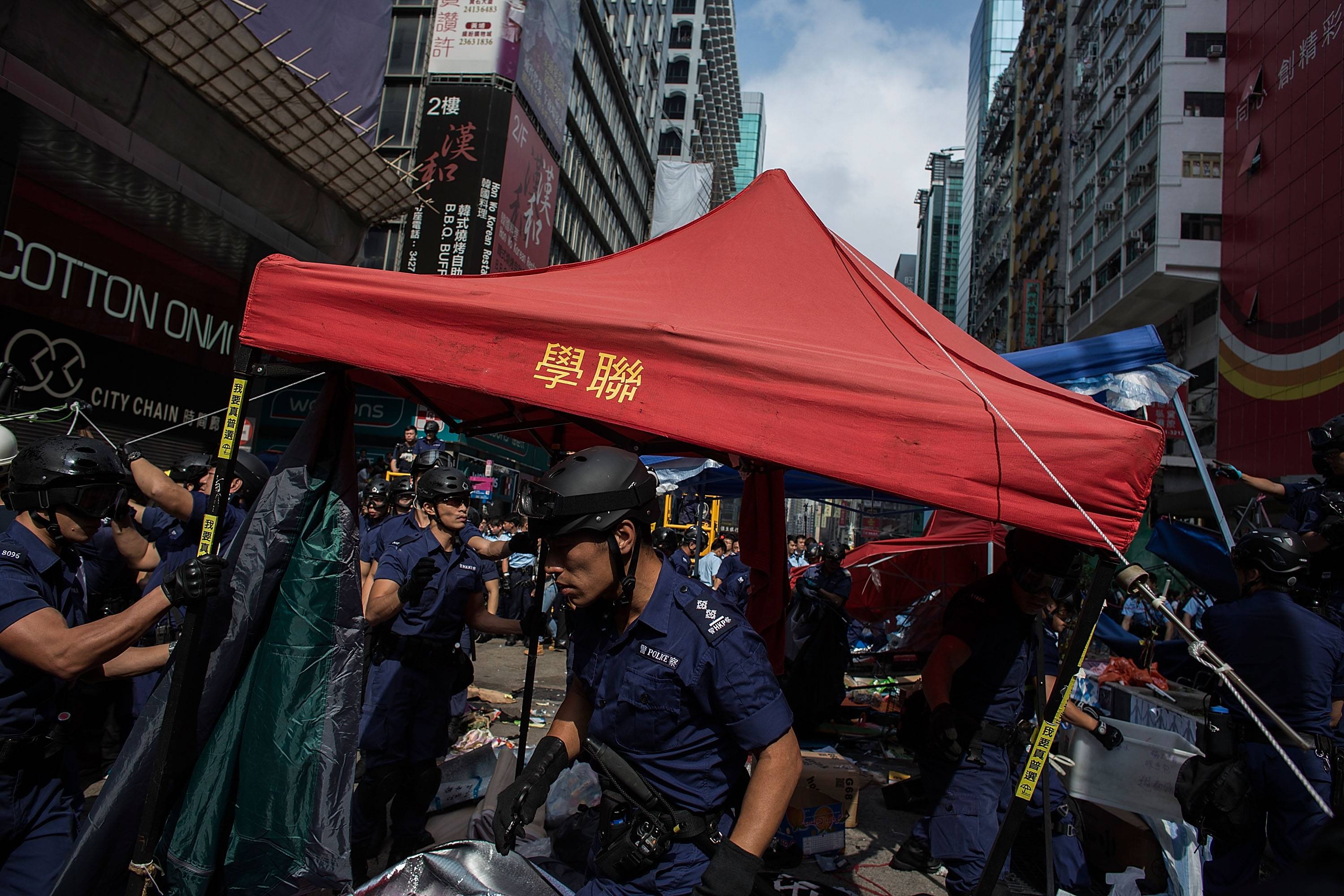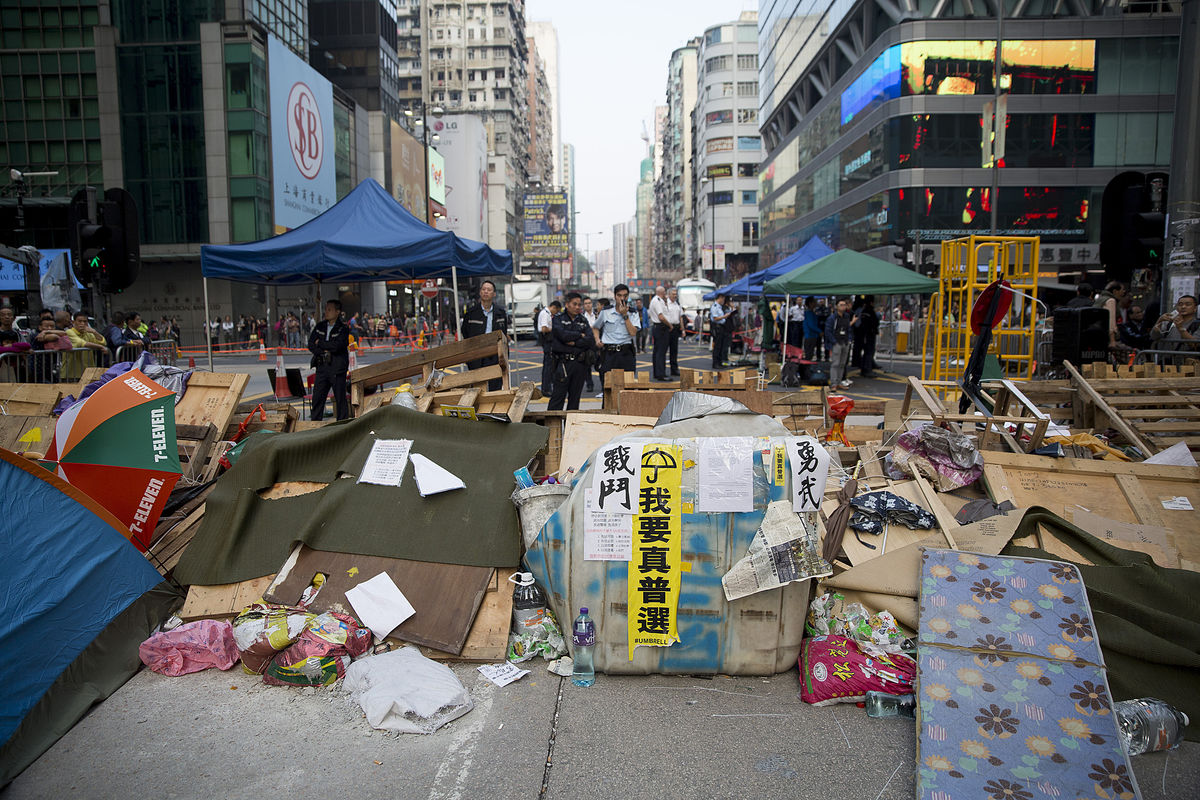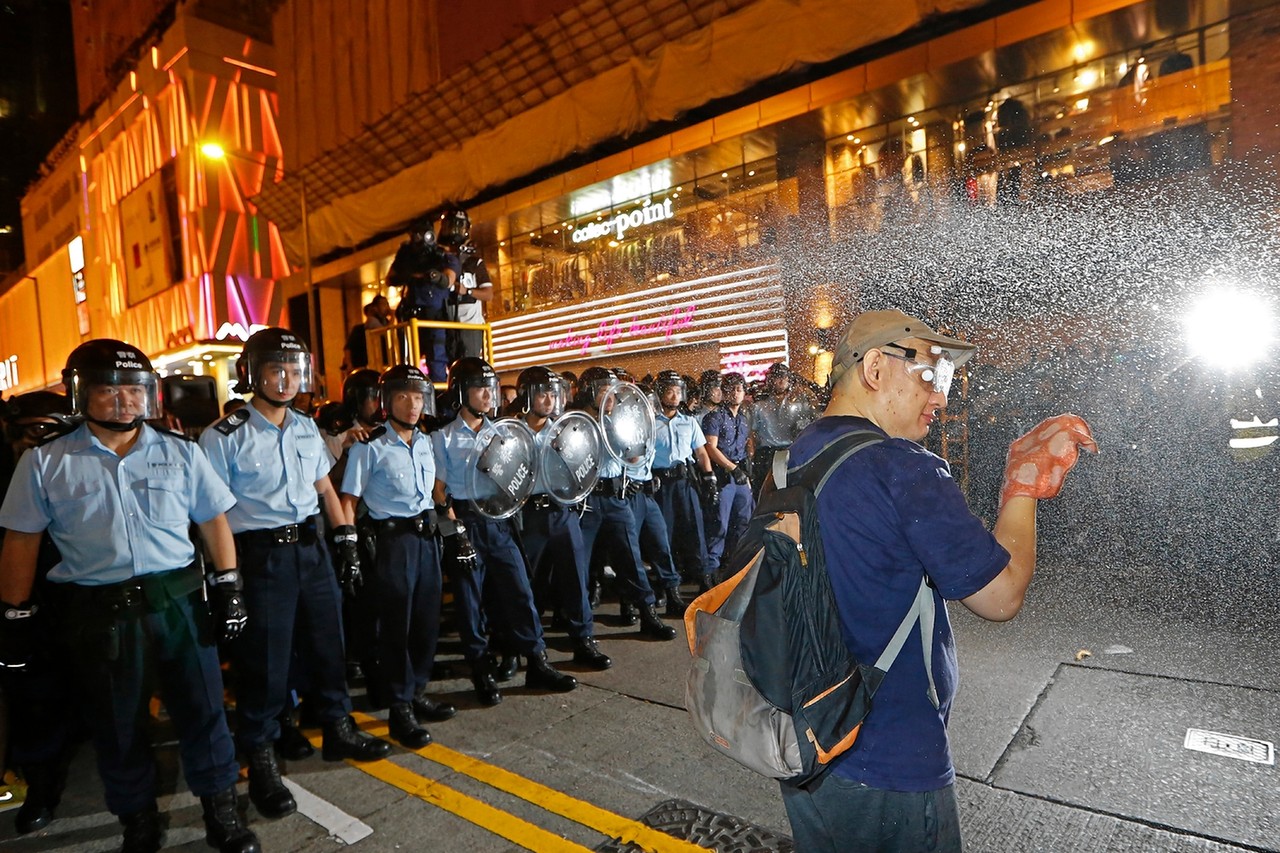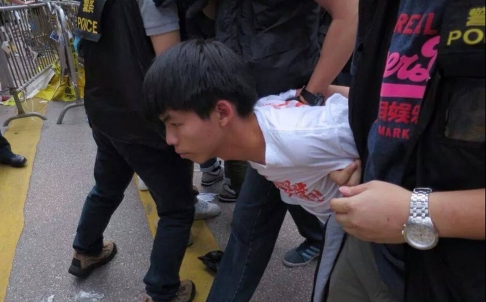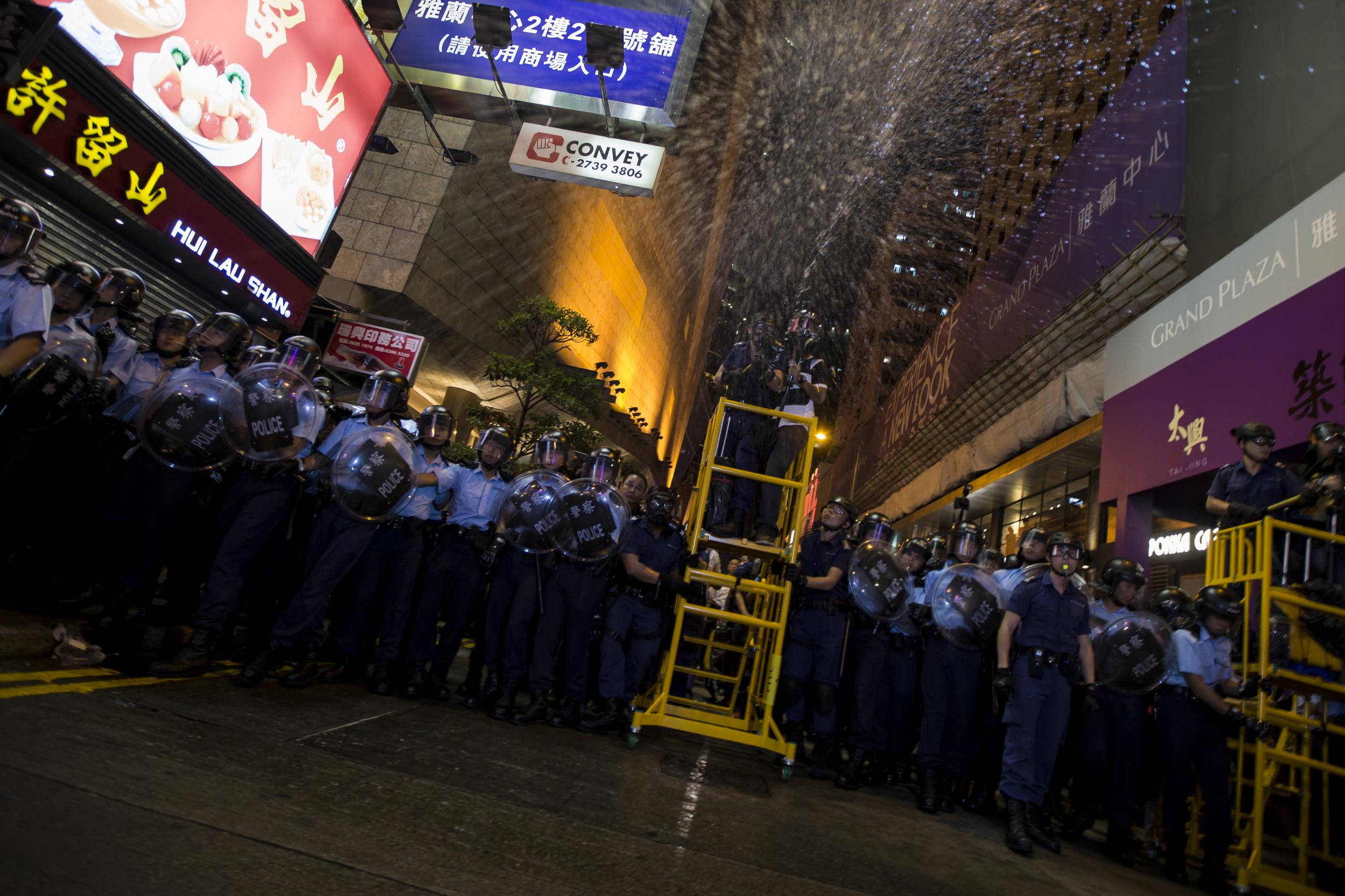What Has Happened To Hong Kong's Umbrella Revolution After 2 Months?
The 'Umbrella Revolution' is dwindling down to a few hundred protesters as the government begins to clear the majority of protest sites.
Some couple of months ago, when students and citizens took to the streets of Hong Kong demanding democratic reforms, it turned into a huge tussle with the powers that be at Beijing. The pro-democracy movement turned into Hong Kong's worst political protest since China took control of the sovereign state in 1997.
Flash-forward to 26 November 2014, the streets of Hong Kong that were thronged by hundreds and thousands of students and citizens alike, have now been mostly cleared up with only a bunch of umbrellas left around. As of today, police officers and court bailiffs have dismantled much of the protest zones in Mong Kok.
Police officers remove tents erected by pro-democracy protesters in the Mong Kok district on 26 November 2014 in Hong Kong. The Mong Kok protest site is scheduled for clearance by baliffs this week after Hong Kong's high court authorized police to arrest protesters who obstruct bailiffs on the three interim restraining orders.
Image via Lam Yik Fei/Getty ImagesWith the falling public support for the already fizzling movement, it's fair to say the pro-democracy movement has lost its wind
Police officers stand near a barricade at the intersection of Nathan Road and Argyle Street in the Mong Kok district of Hong Kong, China, on 19 November 2014.
Image via bloomberg.comMost Hong Kong people have grown weary of pro-democracy protests that have sparked clashes with police and disrupted the city for almost two months, and want the government to take action to end them, a poll showed.
About 68 percent of 513 respondents said the government should clear the protesters immediately, according to a survey conducted by the University of Hong Kong Nov. 17-18.
Public support for the demonstrations, which at their peak saw tens of thousands of people in the streets, is waning after crowds dwindled, attempts to negotiate with the government failed and the movement’s leaders failed to agree on strategy. The protests, the most disruptive since China resumed sovereignty over Hong Kong in 1997, were sparked by Beijing’s decision to screen candidates through a committee for the city’s leadership election in 2017.
bloomberg.comAs the WSJ's Isabella Steger and Fiona Law report:
Police deployed pepper spray after demonstrators refused to clear a section of the Mong Kok site
Image via wsj.netPolice swinging batons charged protesters in some of their most aggressive actions of the conflict. They said they had arrested 86 people for illegal assembly, assaulting police officers and other infractions and warned protesters to leave the site.
The confrontation lasted through the early hours of Wednesday as protesters shifted to other streets and police pushed to clear the area. Police said one person arrested was carrying an axe, hammer and crow bar. Later Wednesday morning, authorities said they will begin clearing a bigger area of the same protest site.
Authorities began clearing the Mong Kok area Tuesday morning but crowds of protesters grew larger as the day progressed. Protesters wearing goggles, masks and helmets and carrying umbrellas confronted police in the evening but were pushed back to a side street by officers using pepper spray.
The confrontation is part of an effort by police, backed by court orders, to clear the protest sites that have been occupied by activists demanding free elections in Hong Kong since late September. The arrest total appeared to be the highest since the start of the protests, when police used tear gas and arrested 78 students.
Police issued a statement Tuesday night saying they would enforce a court order and clear the remainder of the protest site in Mong Kok on Wednesday, warning protesters to leave the site or face arrest.
On 26 November, as ranks of police officers stood guard at Nathan Road in the Mong Kok district, high-profile student protest leaders Joshua Wong and Lester Shum were arrested
Hong Kong police have arrested high-profile student protest leaders Joshua Wong and Lester Shum, as authorities moved to clear a key protest camp at the heart of a pro-democracy civil disobedience movement that has swept the financial hub for two months.
In the clearest escalation against the protesters in weeks, police tactical units were deployed on Wednesday to assist bailiffs in enforcing court orders to remove makeshift steel and bamboo barricades on Nathan Road in the gritty Kowloon district of Mong Kok. Fresh scuffles broke out as some protesters resisted attempts to force them off the streets.
Wong, the 18-year-old convenor of Scholarism, and Shum, 21, the deputy leader of the Hong Kong Federation of Students, were among dozens of protesters arrested by police in Mong Kok since the clearance operation began on Tuesday morning, with thousands of riot and tactical police on standby.
The leaders of Hong Kong and Beijing have not agreed to any of the terms made by the student leaders. Though there have been talks in the past, no progress had been made by either party. Beijing will continue to screen candidates for the 2017 election.
"Even though the majority of the Hong Kong population still want to change the National People's Congress decision … they don't see any possibility that the student occupation will change anything." said Willy Lam, a political analyst at the Chinese University of Hong Kong, though he pointed out the arrests of the popular student leaders may reinvigorate the cause.
The pro-democracy movement has shown signs of splintering, with radical voices urging escalated action after a near two-month stalemate, while others are calling for a tactical retreat.
More than 100,000 people took to the streets at the peak of the protests in early October, but numbers have dropped to a few hundred scattered in tents over three main sites.
